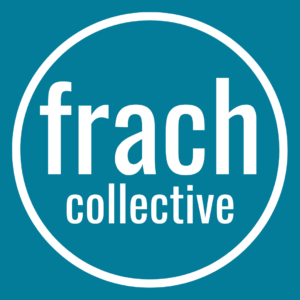Vor einem Monat wurde das Border Violence Monitoring Network (BVMN) vom Ausschuss der Vereinten Nationen (UN) für wirtschaftliche, soziale und kulturelle Rechte (CESCR) eingeladen, während der 70. Sitzung des Ausschusses eine Stellungnahme abzugeben. In diesem Beitrag werden Beobachtungen und Trends in Bezug auf die physische und psychische Misshandlung von Menschen in Bewegung in Bosnien und Herzegowina (BiH) bewertet, die während Pushbacks und innerhalb von BiH vorkommen, und systematische Versäumnisse bei der Bereitstellung von Unterkünften, Gesundheitsversorgung und Grundbedürfnissen in Lagern und selbstorganisierten Unterkünften kritisiert.
Auf der Grundlage von Zeugenaussagen von Menschen im Transit kommt der BVMN zu dem Schluss, dass BiH seinen Verpflichtungen nicht nachkommt und aufgrund einer Reihe von Beobachtungen gegen die Artikel 11 und 12 der Internationalen Konvention über wirtschaftliche, soziale und kulturelle Rechte verstößt:
- Lebenswichtige Gegenstände (wie Geld oder Telefone) werden von den Behörden gestohlen, hauptsächlich in Kroatien und teilweise in Bosnien (Vorlage, S.:4).
- People aren’t given enough or even no food while in detention (p.:5 ibid.) and the conditions are unsanitary and inhumane. (p.:8 ibid.).
- Bei Push-Backs wird von den Behörden Gewalt angewendet (S.:6 ebd.).
- Es gibt in BiH keinen angemessenen Zugang zu physischer und psychischer Gesundheitsversorgung für PoM (S.:15 ebd.), ebenso wird die medizinische Grundversorgung von der Polizei bei Pushbacks verweigert, unabhängig von Verletzungen oder gesundheitlichen Zuständen (S.:7 ebd.).
- Die Unterbringungsmöglichkeiten sind sowohl in Lagern als auch in Migrationszentren und außerhalb der offiziellen staatlichen Strukturen völlig unzureichend (S.:9 ebd.): Dies beinhaltet den einen Mangel an Lebensmitteln und Wasser in den Lagern sowie außerhalb (z.B. versuchen die Behörden, PoM den Zugang zu Supermärkten zu verwehren und kriminalisieren Unterstützungsstrukturen (S.:12-13 ebd.), Zufluchtsmöglichkeiten (S.:12 ebd.), einen allgemeinen Mangel an Sicherheit und Berichte über gewalttätiges Verhalten privater Sicherheitskräfte in offiziellen Lagern sowie über Lager, die weit über ihre Kapazitäten hinausgehen und sich häufenden Räumungen (S.:10-11 ebd.).
Unser Kollektiv konzentriert seine Analyse auf die Verantwortung der EU für die Situation in BiH. Wir versuchen daher zu verstehen, welche Rolle die EU mit ihren sich über ganze Länder erstreckenden Außengrenzen bei der Integration von BiH in das EU-Grenzregime spielt. Darüber hinaus betrachten wir, wie die EU die brutalsten Aspekte in Länder, die als wichtige Transitländer (wie BiH) oder Herkunftsländer identifiziert wurden, auslagert und teilweise finanziert; einige dieser Aspekte werden im BVMN-Bericht erwähnt. Versteht man jedoch das Grenzregime als einen Prozess, in dem eine Vielzahl von Akteur*innen eine Rolle spielt und in dem ein ständiges Kräftemessen zwischen Kontrolle (durch Institutionen, Behörden und letztlich Staaten) und Migration (Ausdruck des Strebens nach Sicherheit und / oder der Freiheit, den eigenen Wohnort zu wählen) stattfindet, so spielen auch lokale Regierungen und Behörden wichtige Rollen im Grenzregime. Aufgrund der Heterogenität und der Eigeninteressen aller beteiligten Akteur*innen ist das Grenzregime einem ständigen Aushandlungsprozess unterworfen. Die Machtasymmetrie in den Beziehungen zwischen der EU und ihren Nachbarstaaten führt jedoch dazu, dass die EU (letztlich) oft ihre eigenen Interessen durchsetzen kann. Wir wollen daher nicht ausschließen, dass die EU für die schlechte und unmenschliche Situation der Menschen auf der Flucht in Bosnien und Herzegowina verantwortlich ist, die letztlich zu einem Bericht wie dem oben zusammengefassten führt. Die Versäumnisse des bosnischen Staates, seiner Verantwortung gerecht zu werden, sind auch Versäumnisse der EU. Die Unterstützung, die die EU anbietet, ist nie zum Wohle der Volksrepublik Bosnien und Herzegowina oder der Bevölkerung von Bosnien und Herzegowina, sondern dient einzig und allein dem Zweck, Menschen außerhalb der EU zu halten.
Die EU muss für die Geschehnisse an ihren Außengrenzen zur Rechenschaft gezogen werden, denn ihre Grenzpolitik führt zu inakzeptablen Bedingungen für Menschen auf der Durchreise.
